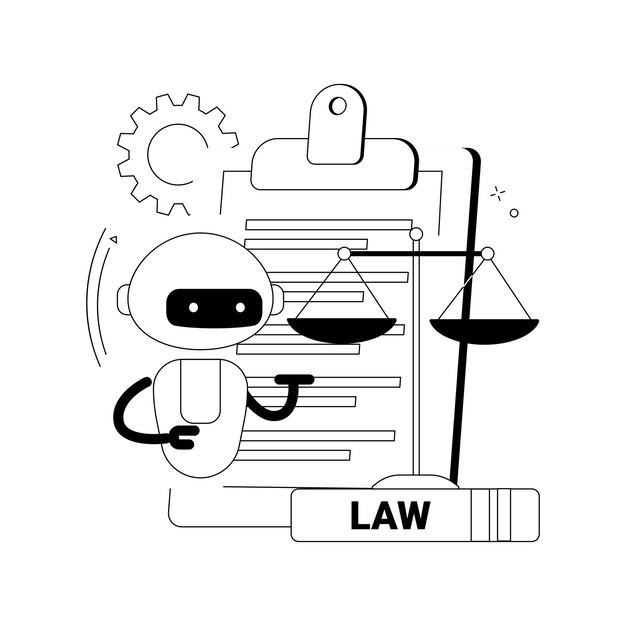In today’s fast-paced legal environment, it is not enough to be just an expert – you must also be efficient, fast, and accurate in your research. Legacy research methods of sorting through thousands of pages of statutes, precedents, and case laws are no longer enough for today’s law firms and lawyers. As of 2025, AI Law GPT will be on the frontline of the legal technology revolution as AI-based research tools redefine access and analysis of legal information, and such power provides data-driven insights in a scale and magnitude never before seen in legal research.
In this blog, we will discuss the most promising AI tools for research and analytics in 2025, their research capabilities and benefits, and why they are considered the best AI tools for research in the legal profession.
Why AI is Transforming Legal Research
Legal research is traditionally one of the most time-consuming tasks in the profession. A lawyer or researcher would spend hours and sometimes days scouring databases looking for relevant judgments, citations or statutes. AI research tools change that by automating the process through the use of sophisticated algorithms, machine learning, and natural language processing (NLP).
By 2025, these AI tools for research are not only fast – they also come with contextual understanding, predictive analysis and even suggest arguments or case strategies. Imagine being able to ask a legal question in plain language, and receive a response in seconds with detailed answers backed with specific citations. That’s what modern AI legal research tool are meant to do.
Important Features of Modern AI Legal Research Tools
Before we jump into the most promising names in this field, let’s define the typical characteristics that describe the best AI tools for research:
- Natural Language Querying – Ability to ask legal questions in plain English and receive accurate results.
- Contextual Understanding – Goes beyond keyword matching to understand the context of legal problems.
- Citation Tracking – Gives accurate citations of cases and tracks precedent application in other jurisdictions.
- Predictive Analytics – Makes predictions about case outcomes based on historical information.
- Document Analysis – Examines contracts, briefs, agreements, etc., to identify risks or inconsistencies.
- Integration Capabilities – Works seamlessly with existing case management systems.
These capabilities make an AI research tool invaluable for both solo practitioners and large law firms.
Best AI Legal Research Tools that are most promising by 2025
1. Ai Law GPT
Ai Law GPT, an intelligent legal assistant focused on legal research and analysis, is set to be the leader in AI legal research tools in the year 2025. AI Law GPT is an AI-based service that provides high-quality legal advice, which is both accurate and contextual, to assist lawyers, paralegals, and students in doing research more quickly, efficiently, and accurately.
Why Ai LawGPT Stands Out Among Research AI Tools:
- Gives specific responses to complicated legal issues with authoritative references.
- Evaluates decisions, actions and legal documents to find out important lessons.
- Produces the summaries of lengthy case laws in a few seconds.
- Facilitates the use of multi jurisdictional legal databases and updated law in real-time.
Ai LawGPT is supported by the capabilities of automation and the knowledge of a human legal researcher, so it is one of the most suitable AI tools to do research in 2025. Its user-friendly design and the accuracy of citing are also enabling law firms to become more productive and retain precision and compliance.
2. Casetext CoCounsel
Casetext has long been one of the leaders in the AI legal research tool market. With its AI-driven assistant “CoCounsel,” it leverages NLP to deliver research results that feel human-curated. By 2025, CoCounsel continues to stand out among research AI tools because of its ability to draft legal memos, analyze depositions, and answer legal questions with authority.
Why it’s among the best AI tools for research:
- Advanced NLP ensures contextual accuracy.
- Time savings in drafting and reviewing documents.
- Continuous learning from updated case law databases.
3. Lexis+ AI
LexisNexis is a name synonymous with legal research, and its AI research tool. Lexis + AI, has revolutionized the way lawyers access information. With its predictive capabilities and real-time analytics, it is one of the best AI tools for research by 2025.
Main Features:
- Massive legal database.
- Visual mapping of case precedents.
- Strong integration with litigation tools.
Lexis+ AI is designed for legal professionals who need precise, reliable, and court-ready information in seconds.
4. Westlaw Precision by Thomson Reuters
Westlaw has been a gold standard for decades, and with the introduction of Westlaw Precision powered by AI, it remains one of the most trusted AI tools for research in 2025.
Why it’s a promising AI legal research tool:
- Provides fact-specific precedent searches.
- AI-based filters make narrowing down case law faster.
- Reputable for its unequaled accuracy and dependability.
For large law firms with high-stakes litigation, we can see Westlaw’s AI research tool will remain invaluable.
5. Harvey AI
Harvey AI is a rising star in the AI legal research tool ecosystem. Harvey is built on top of OpenAI’s GPT models for law firms and in-house legal teams. By 2025, it has expanded itself into one of the most innovative research AI tools due to its conversational interface and capacity of performing complex legal tasks.
Standout Features:
- Drafting contracts and NDAs.
- Providing quick answers to regulatory questions.
- Analyzing large sets of documents efficiently.
Harvey proves that the best AI tools for research don’t just stop at research—they extend to practical, everyday legal workflows.
6. Bloomberg Law AI
Bloomberg’s entry into the AI research tool space has been a game-changer. By combining financial expertise with legal databases, Bloomberg Law AI provides an integrated approach to compliance and litigation research.
Strengths:
- Deep insights into business and financial law.
- AI-powered compliance tools.
- Strong analytics for corporate legal teams.
For firms that balance corporate, finance, and legal cases, Bloomberg remains one of the best AI tools for research.
7. ROSS Intelligence (Revived by 2025)
Although ROSS Intelligence faced challenges in earlier years, by 2025 it has made a comeback with upgraded AI features. It is now one of the most promising AI legal research tools, designed to make legal knowledge more accessible and affordable.
Highlights:
- Affordable pricing for small firms.
- Strong search capabilities.
- Growing library of case law data.
ROSS demonstrates that research AI tools are no longer limited to big firms—they are becoming democratized.
8. AI Contract Review Tool (Kira, Luminance, Evisort)
By 2025, many law firms will also rely on AI research tools that specialize in contract analysis. Tools like Kira, Luminance, and Evisort are not traditional legal research platforms but are important AI research tools for risk assessment, compliance check, and due diligence purposes.
Why they matter:
- Save hours in reviewing lengthy contracts.
- Identify risks with high accuracy.
- Enhance research by highlighting clauses linked to case precedents.
These tools round out the ecosystem of the best AI tools for research, focusing on specialized areas.
Benefits of Using AI Legal Research Tools
The adoption of AI tools for research in the legal profession comes with significant benefits:
- Time-Saving: Time spent on researching can be reduced from hours to minutes.
- Accuracy: AI reduces human error by cross verifying the results with citations.
- Cost Savings: Law firms are able to take on more clients with fewer resources.
- Accessibility: Advance legal research becomes easily accessible to smaller practices because of cost-effective AI legal research tools subscriptions.
- Strategic Advantage: Lawyers can prepare more effective cases because of predictive analytics providing insights about possible outcomes.
In 2025, law firms that do not implement an AI research tool may be at a severe competitive disadvantage.
The Future of AI in Legal Research
The path of AI legal research tools has no intention of slowing down. According to experts, by 2030, these tools will be fully integrated virtual legal assistants not just tools for researching but also for strategy development, preparing for the courtroom, and communicating with their clients.
The most useful AI tools for research will be those that are based on advanced machine learning, so they can continuously be updated and taught to comply with new laws and regulations. With legal professionals demanding both speed and precision, the role of research AI tools will only expand.
Conclusion
By 2025, the legal profession has adopted the undeniable benefits of AI. From giants such as Lexis+ AI and Westlaw Precision, to innovators such as Harvey AI and contract-specific tools, the future of legal research is fast, accurate, and accessible. The legal research tool with Artificial intelligence is no longer only a luxury, it is a necessity for every forward-looking legal professional.
For law firms and practitioners looking to stay competitive, investing in the best AI tools for research is not an option, but a necessity. With the fast changes in the research AI tools, the legal industry is moving into the time of smart technology working hand in hand with human expertise to provide justice more efficiently than ever before.










